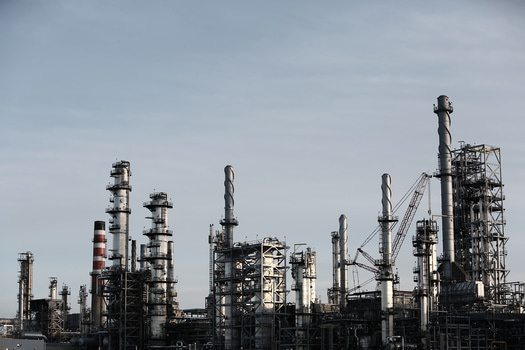An Oasis of Oil
On September 14, 2011, a major explosion at an oil well owned by Oasis Petroleum North America, LLC in the Bakken region of North Dakota claimed the lives of two workers—Brendan Wenger, who died instantly, and Ray Hardy, who would die the following day as a result of the burns he suffered. Another man, Michael Twinn, underwent a procedure to have both of his legs amputated and eventually committed suicide, having battled post-traumatic stress disorder following the disastrous explosion. A fourth man, Doug Hysjulien, was left with third-degree burns covering the majority of his body.
These men were employed by Carlson Well Service, a company that Oasis contracted to work the well. Six months after the tragedy, Carlson received a fine of $84,000, later reduced to $63,000. Oasis was neither cited nor fined as a result of the incident. The explosion remains the worst accident in Bakken since the dawn of the oil boom in that region.
Lake of Fire
Despite at least 74 work-related fatalities in the Bakken region as of January of 2015, only one energy operator has been cited for liability in a work-related fatality in the last five years: Slawson Exploration, Inc. received a fine of $7,000 in 2013 following the death of a worker who lost his life in an explosion. As oil prices continue to decline, industry safety experts profess concern that safety will become even less of a priority as drilling companies rush to increase well production. Says Peg Seminario, director of safety and health for the AFL-CIO: “These workers are paying for cheap gas with their lives and their limbs.”
Despite the significant risk associated with this type of work (amputations, fractures, severe burns, and even death), workers are willing to take their chances due to the lucrative salaries that oil drilling companies hand out. In Bakken, drilling and well servicing costs around $9 million per well, but those same wells generate roughly $27 million each. Yet, regardless of the $18 million profit margin, these corporations have positioned themselves against increased safety regulations and refuse to accept responsibility for the health and well-being of their employees. Instead, they maintain the company line regarding safety and plead ignorance as they transfer the blame to their contractors.
The Mirage
In addition to the loss of life and the severe injuries occurring at North Dakota drill sites, there appears to be a major accountability problem as the oil industry frustrates attempts at oversight and acts as its own regulatory body. The American Petroleum Institute (API) is the primary lobbying component of the industry, and they are able to influence various governing bodies (not the least of which is OSHA) to institute policies that fail to meet comprehensive workplace safety regulations. In short, the oil industry is writing their own rules, and the result is the absence of any system that incorporates the necessary checks and balances of workplace safety.
One glaring example of this problem is that drilling and fracking companies are currently exempt from federal laws that require machines under repair to be locked and tagged as non-usable. Doing so is recommended by the API but not required. When these recommendations (or even requirements) are not followed and results in death or injury, an intricate network of incestuous corporate ties acts as a force field in the form of indemnity clauses.
Indemnity clauses are contractual statutes that essentially protect big energy firms from facing accountability and the subsequent consequences of their involvement. Instead, their contractors’ insurance companies are ordered to pay, allowing the major players to avoid responsibility, negative press, and a slowdown in production, even as their “contracted” employees are risking their lives.
Since these massive corporate entities are allowed to pass the buck to the smaller contractors and the contractors’ insurance companies, there’s no incentive for them to tighten safety protocols. And when tragic incidents do occur (like the one described above), the energy companies can continue their standard operating procedures with impunity. Even when attempts at instituting oversight have been made, the industry’s political “heavy artillery” has succeeded in quickly shooting them down.
State legislators in North Dakota have attempted to institute laws to regulate the industry, but oil and gas lobbyists have flexed their powerful muscles to impose a legislative stranglehold. For instance, in January 2011, North Dakota House members proposed House Bill No. 1166, which attempted to prevent major energy companies from forcing smaller contractors to accept responsibility in the event of serious injury or death resulting from negligent or reckless activity. The North Dakota attorney who drafted the bill, Paul Sanderson, summarized the intention of such legislation by stating: “If you break it, you buy it. When a person is not responsible for their actions, they disregard the consequences.”
After the bill passed the House Judiciary Committee, North Dakota Petroleum put forth a major lobbying effort to stop the bill. In a letter to the House Judiciary Committee, Todd Kranda, a lobbyist for North Dakota Petroleum, wrote that “HB 1166 simply is not necessary and is an inappropriate interference with private right of parties to enter into such contracts with indemnity provisions.” Less than a week later, the bill was defeated by a margin of 63-27 on the House floor.
What Mr. Kranda fails to note—or perhaps to understand—is that there is a gross imbalance of power here. If a contractor refuses to accept the indemnity provision, the energy company will walk up the street and offer the same contract to a different contractor. David at least had a slingshot in his battle with Goliath; the contractors in this fight don’t even have a stone.
Dousing the Flames
Thankfully, Texas has developed and implemented legislation that helps prevent major energy companies from building a wall between themselves and accountability through their contractors and their contractors’ insurance companies. Title 6, Chapter 27 of the Civil Practice and Remedies Code calls for corporate responsibility in the drilling and fracking industry. In doing so, the language of the legislation states, “an inequity is fostered on certain contractors by the indemnity provisions in certain agreements pertaining to wells for oil, gas, or water or to mines for other minerals.”
Still, despite government intervention at the state level, the fact remains that the oil and fracking industry is fraught with issues surrounding worker safety. The focus on speed and avoiding accountability is simply too great, and these objectives continue to trump the well-being of the men and women working these wells, especially in the Eagle Ford Shale oil region.
As the risk of injury and loss of life continues to increase, Crosley Law Firm will maintain our support for regulatory efforts that ensure the safety of employees and increase accountability. Likewise, we will continue pursuing personal injury and wrongful death cases related to the oil and fracking industry.
If you or someone you know has been injured as a result of an unsafe working environment in the energy industry or another field, Crosley Law Firm will advocate on your behalf in the pursuit of justice and financial compensation. We offer free consultations, and we have a “No Fee” policy for all of our clients that ensures you will not pay a dime out of pocket unless or until we have achieved optimal financial recovery on your behalf. Contact us at (210) 354-4500 or by completing a request for a free consultation on our website.
Reference:
Gollan, J. (2015, June 13). In North Dakota’s Bakken oil boom, there will be blood. RevealNews. Retrieved from https://www.revealnews.org/article/in-north-dakotas-bakken-oil-boom-there-will-be-blood/









